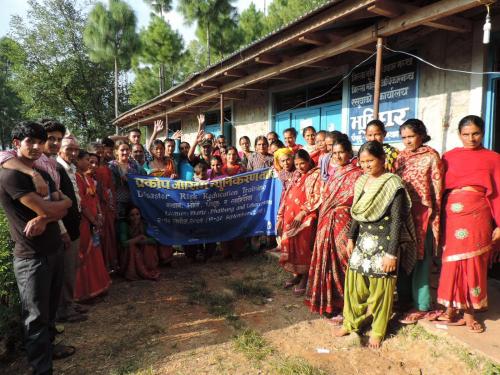
I’ve been observing NGOs, Community Self Reliance Centre (CSRC) and Friends Service Council Nepal (FSCN) which recently have needed to hire contractors to provide Disaster Risk Reduction (DRR) classes, perform business analyses and conduct specific business related trainings. What I’ve found/heard is that many NGOs hire “friends”, including board members or stakeholders to perform a task without any type of market assessment. Instead of increasing awareness about an NGO’s work this maintains the organization in a “box”. The thinking seems to be that the NGO needs to “reward” its friends although many of these people have signed up as volunteers and should really not expect remuneration or favors. For me this is a very different perspective for me but something that is universal.
However, in order to “level the playing field” CSRC and FSCN used a Request for Qualifications (RFQ) and Proposal (RFP) process to find contractors. Although deadlines needed to be extended to obtain more responses this modality has proven to be equitable, created further partnerships/supporters and brought in new perspectives for the NGOs. If “friends” possessed the experience they could also have applied, but they were rated against others. Although not everyone could be chosen, further organizational awareness was created.
Through CSRC in Rasuwa, I observed the results of the above described process. The Disaster Risk Reduction (DRR) trainings by TRACE, have proven that the process does work because CSRC was committed to this process. I’ve seen a very high level of community based interactive trainings. Although the trainers may not be full-time employees of the training companies, they’ve still needed to have a high level of expertise to produce positive results.
What I’ve also observed in my recent trip to Rasuwa is that although NGOs might want to try to partner possibly due to some pressure from donor INGOs, this is a very difficult process. Fortunately CSRC’s District Land Right Forum (DLRF) in Rasuwa has very strong relationships with others including government officials and realize that they must partner in order to reach deeper into a variety of communities.
I was also fortunate to be able to observe a meeting with a DADO official who very much out of necessity and to avoid duplication understands the need to partner and will most likely call NGOs to a meeting. The private sector might also be included to provide a different perspective and other resources. The point is that this official’s attitude and leadership are needed in order for more people to be provided with opportunities to get out of poverty.
In terms of the DRR trainings, I recently attended a meeting in which Cordaid and its partners, Parivartan and Lumanti are working more extensively in some of the same VDCs as CSRC. They indicated that they would be doing mapping and programs related to disaster resilience, which lays the ground work for a partnership with CSRC. It also helps that many of the staff of the organizations already know one another.
The fact that 400 more community people are now trained in basic DRR concepts and will be provided with further learnings makes it possible to not only develop practical plans but to also be able to respond appropriately when disaster occurs again. Although possibly not intended, this example shows the power of how collaboration can provide a model for communities to follow suit and become stronger. Since all of the organizations mentioned in this article will also work on household economic recovery, in 1-2 years these communities should be much stronger.
As I continue to write about partnerships, I don’t want to give readers any false hopes. It’s much easier to provide resources and work on an organization’s own projects rather than partner. But given limited resources and overlap in projects it makes sense to collaborate.










Add new comment